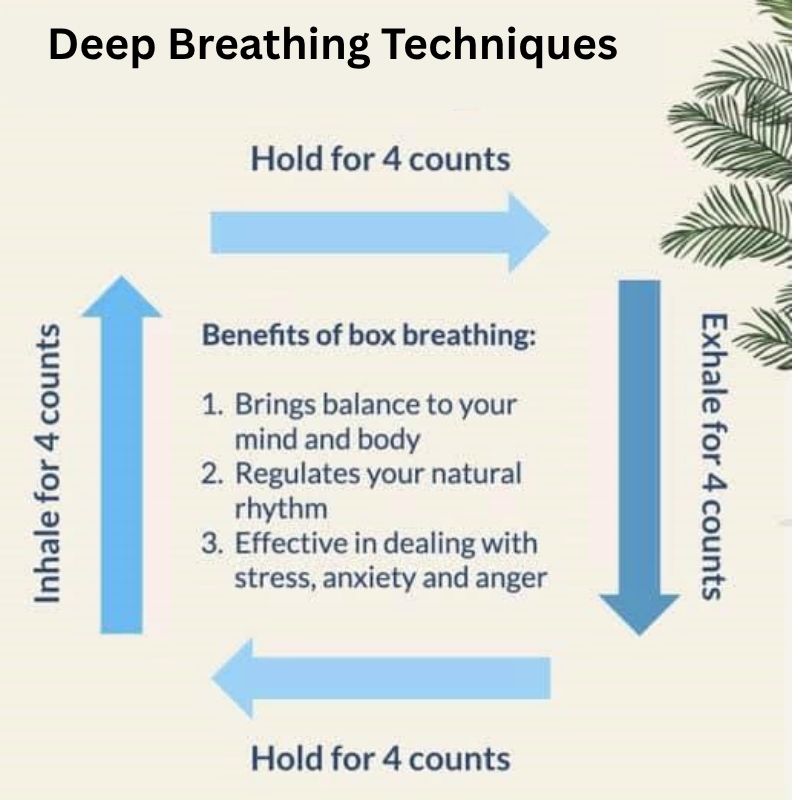Anxiety can feel overwhelming—racing thoughts, tight chest, sleepless nights—but not everyone wants to rely on medication to manage it. Fortunately, there are effective, evidence-based tips for managing anxiety without medication that can help calm your mind and restore balance naturally.
This guide is written in a natural, human tone, based on real strategies that work. Backed by EEAT principles and semantic SEO, it’s designed to support you in your wellness journey with useful, actionable advice.
Understand What Anxiety Is
Anxiety is the body’s natural response to stress or danger. While occasional anxiety is normal, chronic anxiety can disrupt daily life, relationships, and your physical health. You don’t need to rely solely on medication to feel better. There are holistic strategies that can effectively manage anxiety symptoms over time.
Practice Deep Breathing and Grounding Techniques

One of the most immediate tips for managing anxiety without medication is to regulate your breathing. When you’re anxious, your breath becomes shallow, triggering a stress response.
Try This Exercise:
- Inhale slowly for 4 seconds
- Hold your breath for 4 seconds
- Exhale gently for 6 seconds
- Repeat for 5–10 minutes
This technique, often called box breathing, activates the parasympathetic nervous system, helping you feel more relaxed. For guided breathing, explore Calm’s breathing tools.
Make Lifestyle Changes That Support Mental Health
1. Get Regular Exercise
Physical activity boosts endorphins and lowers stress hormones. You don’t need intense workouts—a 30-minute walk, yoga, or dance session can do wonders for anxiety.
According to Harvard Health, regular exercise is as effective as some medications for treating mild to moderate anxiety and depression.
2. Improve Sleep Hygiene
Lack of sleep worsens anxiety. Create a consistent bedtime routine, reduce screen time before bed, and avoid caffeine in the evening.
3. Reduce Stimulants
Caffeine and sugar can spike anxiety. Try switching to herbal teas like chamomile or lemon balm, known for their calming effects.
Embrace Mindfulness and Meditation
Mindfulness teaches you to observe your thoughts without judgment. It’s one of the most powerful tips for managing anxiety without medication, as it rewires how your brain responds to stress.
Try mindfulness meditation apps like Headspace or Insight Timer, even for just 5 minutes a day. The practice can help you stay grounded and prevent your thoughts from spiraling.
Journal Your Thoughts
Sometimes, writing down your thoughts can help declutter your mind. Journaling offers a safe outlet to explore your emotions and make sense of what you’re experiencing.
Helpful Prompts:
- What triggered my anxiety today?
- What thoughts am I holding onto that aren’t helping me?
- What am I grateful for right now?
Keeping a regular journal can reduce mental overload and bring clarity to your daily experiences.
Practice Gratitude and Positive Self-Talk
Negative self-talk feeds anxiety. Start by identifying irrational thoughts like “I can’t handle this” or “Everything will go wrong,” and replace them with grounded, compassionate statements.
Also, practicing gratitude—writing down 3 things you’re thankful for each day—can shift your focus from fear to positivity.
Read more about how gratitude affects the brain on Greater Good Science Center.
Set Healthy Boundaries and Learn to Say No
Overcommitment leads to burnout, which fuels anxiety. Learn to recognize your limits and say no without guilt. Protect your time and energy, especially if you’re feeling emotionally drained.
Setting healthy boundaries is a form of self-respect and a proactive approach to emotional balance.
Limit Screen Time and News Consumption
While staying informed is important, constant exposure to stressful news or social media can heighten anxiety. Set screen time limits or take digital detox breaks during the week.
Use apps like Freedom to block anxiety-inducing content or create screen-free zones in your day.
Connect with Others
You don’t need to go through anxiety alone. Talk to a trusted friend, family member, or join a support group. Simply expressing how you feel can reduce internal pressure and create emotional relief.
If face-to-face support isn’t available, consider online communities like 7 Cups, where trained listeners offer emotional support anonymously.
Consider Therapy or Coaching
Even if you’re avoiding medication, therapy is a highly recommended part of managing anxiety naturally. Cognitive Behavioral Therapy (CBT), in particular, is proven to help people recognize and change thought patterns that fuel anxiety.
Many therapists now offer affordable online sessions through platforms like BetterHelp or Talkspace.
FAQs
Q1: Can I completely manage anxiety without medication?
Yes, many people successfully manage anxiety with natural strategies like exercise, therapy, meditation, and lifestyle changes. However, individual needs vary, and professional guidance is key.
Q2: How long does it take to see results from non-medication methods?
It varies, but many people feel better within a few weeks of consistent practice. Long-term habits bring sustainable results.
Q3: Is mindfulness really effective for anxiety?
Absolutely. Mindfulness helps reduce overthinking and grounds you in the present, a powerful antidote to anxiety.
Q4: What if these tips don’t work for me?
If natural methods aren’t helping after a sustained effort, it’s wise to consult a mental health professional for a personalized plan.
Q5: Are there specific foods that help manage anxiety?
Yes, foods rich in magnesium, omega-3s, and complex carbs (like spinach, salmon, and oats) support brain health and reduce anxiety symptoms.
Final Thoughts
Learning effective tips for managing anxiety without medication is empowering. You don’t have to feel helpless or dependent on prescriptions. With mindful practices, emotional tools, and the right lifestyle shifts, you can calm your mind and regain control of your well-being.
Everyone’s journey is unique, but the key is consistency and compassion toward yourself. Small changes—like a daily walk, quiet breathing, or journaling—can make a big difference over time.
If you’re just starting out, choose one or two of these tips and build from there. The goal isn’t perfection—it’s progress, healing, and peace.

